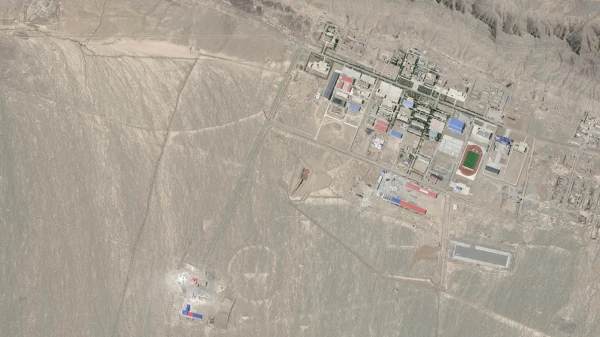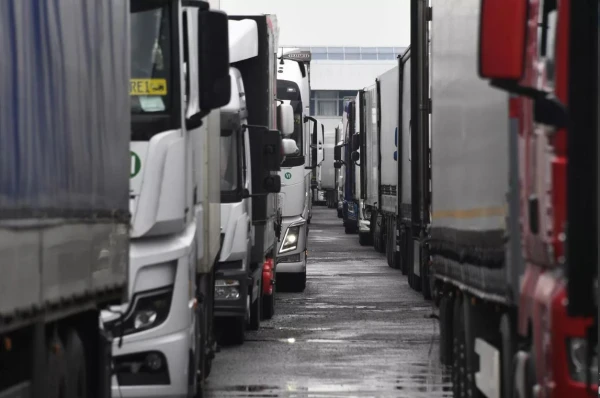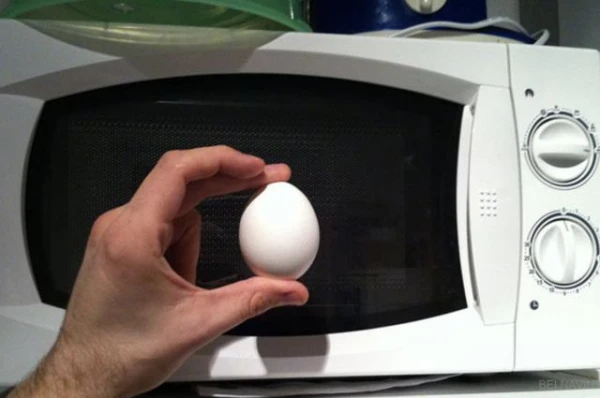
Weapons of mass destruction are necessary for Beijing for blackmail.
China is rapidly expanding and modernizing its nuclear testing site in the western part of the Xinjiang Uyghur Autonomous Region (a province in northwestern China), where it first tested an atomic bomb in 1964, The Washington Post reports, citing satellite images and expert analysis. The aim is not only to catch up with the United States and Russia but also to ensure nuclear deterrence against the U.S. in the event of an attempt to seize Taiwan.
The military has constructed new tunnels and roads, drilled two major wells in the desert that could serve as the basis for special vertical shafts for conducting higher-yield nuclear explosions, built auxiliary facilities, and established power supply, WaPo writes. "Overall, this indicates significant infrastructure development over the past five years and a sharp increase in testing capabilities," said Rennie Babiarz, vice president of AllSource Analysis, who regularly conducts geospatial analysis of these sites.
Initial work began in 2021, and current activities are ongoing, according to Babiarz's data. In its nuclear program, China lags behind the U.S. and Russia; this may be the reason for the preparation of the testing facility. "Since China has conducted the fewest nuclear tests, it has much less empirical data. It may need additional experiments... to learn more about nuclear weapons," said Tong Zhao, a senior fellow at the Carnegie Endowment for International Peace.
China's potential preparation for nuclear tests comes amid escalating tensions between Russia and the U.S. Vladimir Putin has once again boasted about "wonder weapons" – the nuclear-powered missile Burevestnik and the nuclear torpedo Poseidon. In response, Donald Trump ordered the Pentagon to immediately begin nuclear weapons testing. The U.S. has also subtly demonstrated the secret nuclear missile AGM-181 Long-Range Stand-Off, which was carried by a B-52 bomber during an official test flight.
According to the Federation of American Scientists, the U.S., which has not conducted nuclear tests since 1992, currently possesses 5,117 nuclear warheads (of which 3,700 are retired and in storage), while Russia has 5,459, and China has 600. North Korea has about 50 warheads.
The Stockholm International Peace Research Institute estimates that China's arsenal will grow to about 1,000 warheads by 2030.
China is not constrained in developing its nuclear program, while the U.S. and Russia are bound by the Strategic Arms Reduction Treaty (START III). However, its term expires in February 2026, and in February 2023, Putin suspended its operation. Beijing refuses to discuss any treaties as it is significantly behind the U.S. and Russia.
Its activity is already raising alarms in Washington, not only in the nuclear sphere, The Wall Street Journal writes. "Our entire nuclear modernization program was based on the assumption that we would continue to reduce arms with Russia, and that China and North Korea would not pose a threat to the U.S. These assumptions have proven incorrect," said Vipin Narang, director of the Nuclear Security Program at the Massachusetts Institute of Technology, who oversaw U.S. strategic weapons at the Pentagon under Joe Biden. "If a regional conflict erupts in Europe and China simultaneously decides to seize Taiwan, or vice versa, we will find ourselves in a very difficult position."
Xi Jinping has ordered his military to be ready to seize Taiwan by 2027, according to U.S. intelligence, although this does not mean he will necessarily give such an order in such a short time. However, U.S. and NATO military officials say the most likely scenario appears to be a simultaneous operation: a Chinese attack would be accompanied by a Russian assault on one or more NATO countries and possibly an invasion of South Korea by North Korea. And while Russia uses nuclear blackmail to compensate for the failures of its conventional army, which has been fighting in Ukraine for nearly four years, Chinese strategists have a different calculation.
"Since the U.S. fears losing a conventional war, some suggest [they] use nuclear weapons against China in the Taiwan Strait," said retired Colonel Zhou Bo, former director of the Security Cooperation Center at the Chinese Ministry of Defense and now a senior fellow at Tsinghua University. "China needs to increase its nuclear arsenal – not to achieve parity, but to such an extent that the U.S. wouldn’t even dare to think about using nuclear weapons against it. And then China can win in a conventional war."















Leave a comment